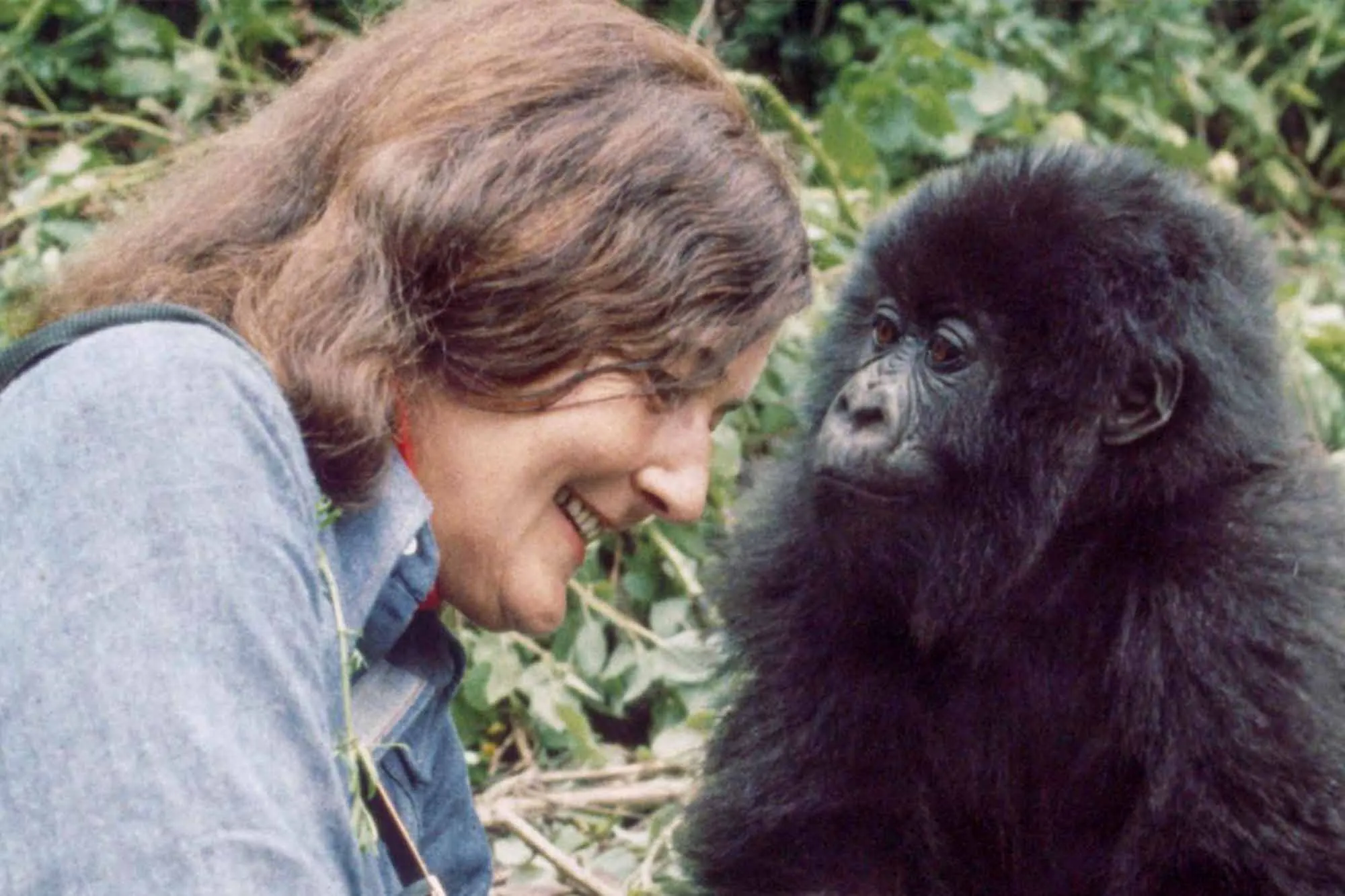
6 Days Rwanda Primate & Conservation Adventure Safari
Embark on an unforgettable journey through Rwanda, the “Land of a Thousand Hills,” where breathtaking landscapes meet extraordinary wildlife encounters. This 6-day safari takes you
Rwanda, though small and landlocked, offers remarkable diversity, making it a must-visit destination. The renowned Volcanoes National Park stands out, where tracking endangered mountain gorillas delivers a profoundly humbling safari experience. Rwanda’s richness extends to primate tracking, including golden monkeys in Volcanoes and Nyungwe, and chimpanzees in Nyungwe Forest. These treks vary in duration but generally require 2-4 hours, with up to an hour of precious ape encounter time. Beyond primates, Akagera National Park houses larger mammals like elephants, buffalos, rhinos, and lions. Private game drives there offer a personalized adventure and seamless combinations with other Rwandan destinations.
Why we love Safaris in Rwanda?
Rwanda is nicknamed the Land of a Thousand Hills, and rightly so. The African Rift Valley has shaped this country to become the dramatic and unique landscape that it is today, and some of the world’s most fascinating and endangered species are proud to call this their home. The species that Rwanda is most famed for is the mountain gorilla. With less than 1,000 mountain gorillas left in the world, it is extremely important to protect the Virunga Mountains, to which they call home. Almost all our luxury Rwanda safari include a couple of days to stay in Volcanoes National Park. With only a two-hour drive from Kigali, a mountain gorilla trek is a truly unforgettable experience. Although everyone attends the same safety briefing at the park headquarters, each gorilla trek is completely unique and can last between an average of 2-6 hours. Once you find the gorillas, you are allowed to spend one hour with them, enjoying their enormous presence. Journeys in Rwanda also include the Nyungwe Forest, where you can do other primate treks and scenic hikes. Akagera National Park in eastern Rwanda is also worth visiting, and a great way to spend a couple of nights on safari. The wildlife here is thriving as species have been reintroduced to the park, and the management of the park is doing a great job.

Embark on an unforgettable journey through Rwanda, the “Land of a Thousand Hills,” where breathtaking landscapes meet extraordinary wildlife encounters. This 6-day safari takes you
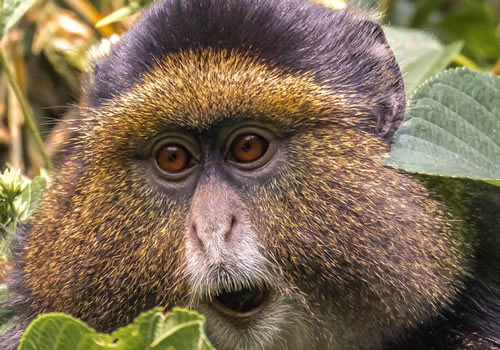
Immerse yourself into the land of a thousand hills as you traverse through the picturesque view of our hills as you interact with the locals

Embark on an unforgettable journey through the heart of Rwanda with our exclusive Rwandan Uniquely Hand-Crafted Journey! Start in the vibrant city of Kigali before
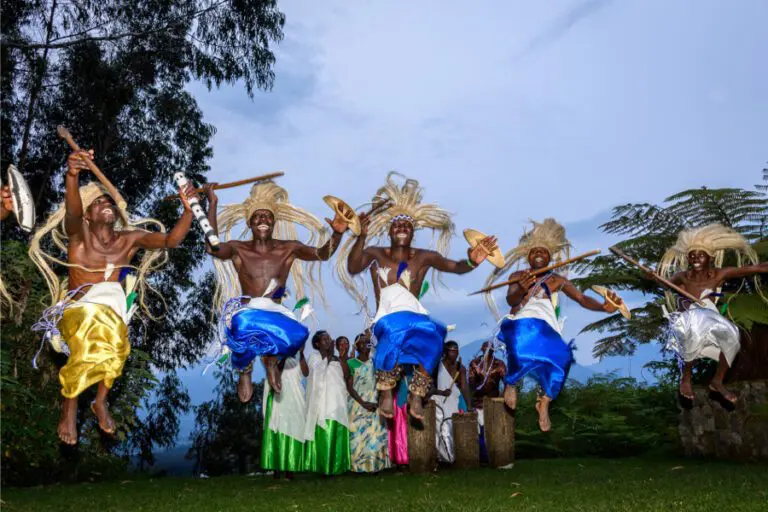
Embark on a luxurious 10 day journey through Rwanda’s stunning landscapes. Start in Kigali, with a warm welcome and top-tier accommodations. Explore the rainforests of
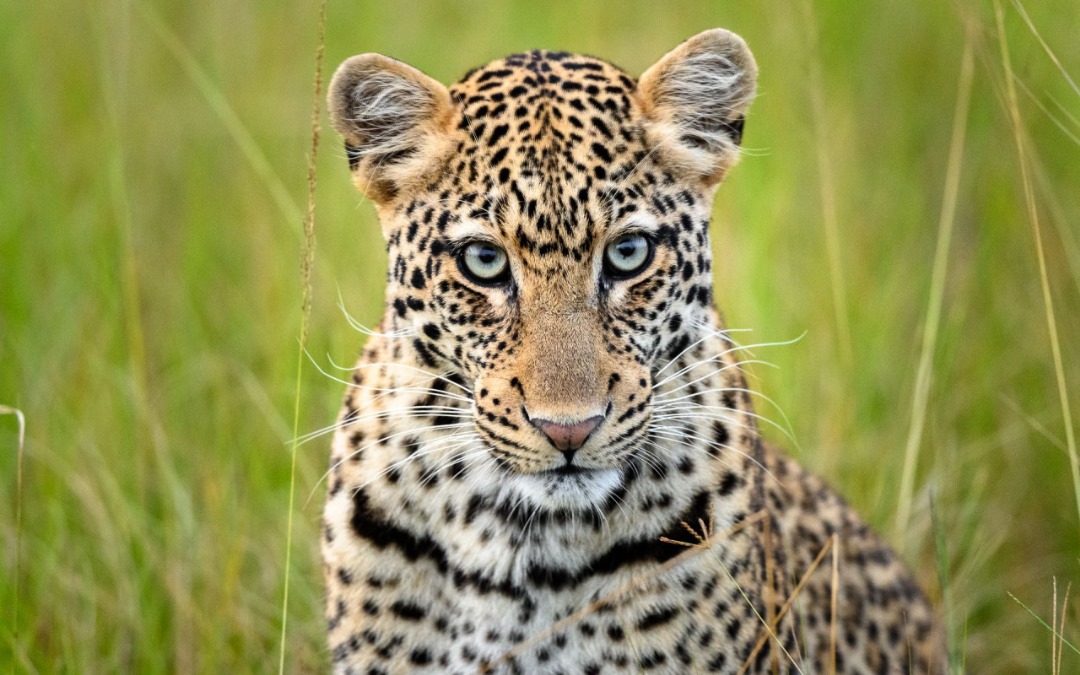
Embark on our remarkable 15 days Wildlife and Gorillas of Rwanda Photography Safari. Rwanda has more to offer than the mountain gorillas it’s best known
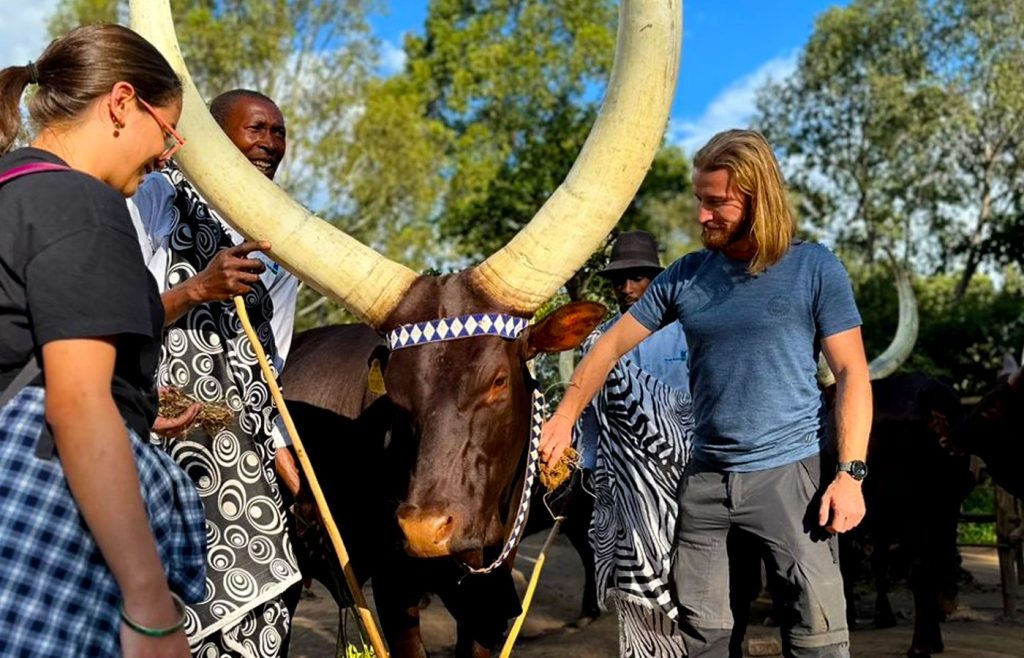
Embark on a curated exploration of Rwanda’s diverse wonders, where each destination narrates a unique story. From the renowned wildlife spectacles of Volcanoes National Park
Begin your adventure with an exquisite stay at the opulent Kigali Serena Hotel, offering unparalleled luxury. Embark on a half-day city tour on your way
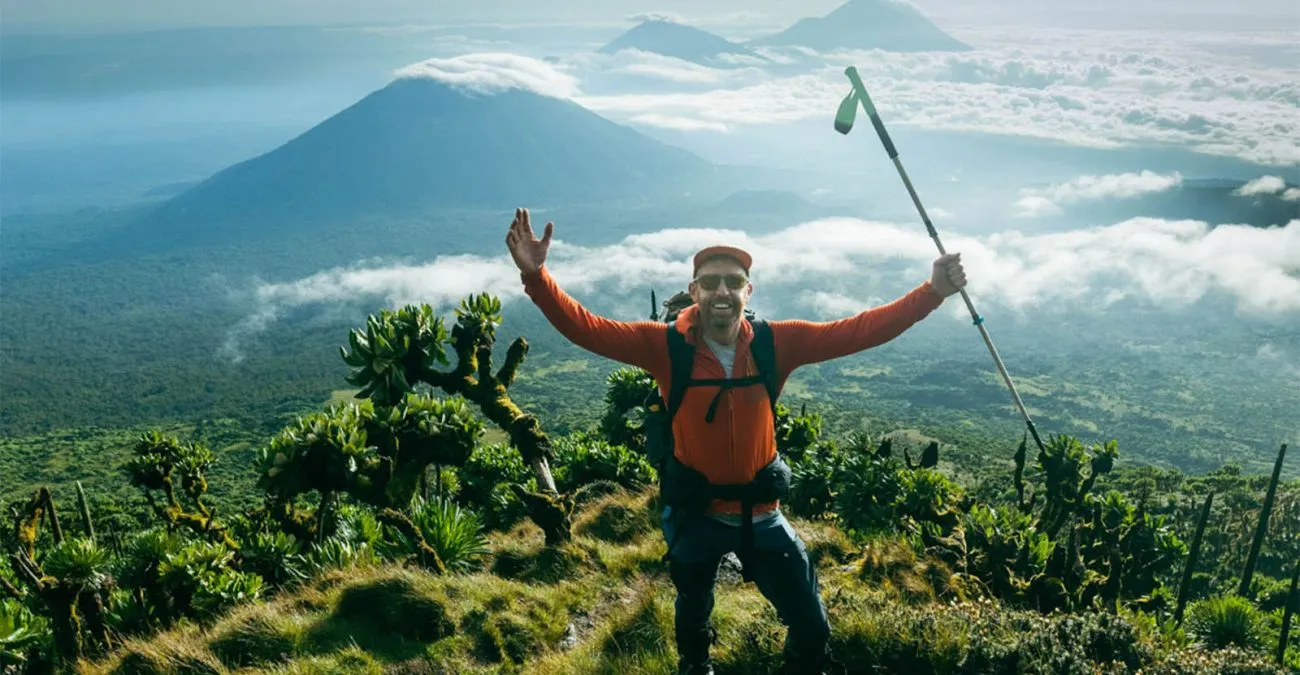
Embark on a 5 days adventure through Rwanda, featuring a Mount Bisoke volcano hike, golden monkey tracking, and unforgettable gorilla trekking. Explore Volcanoes hidden gems
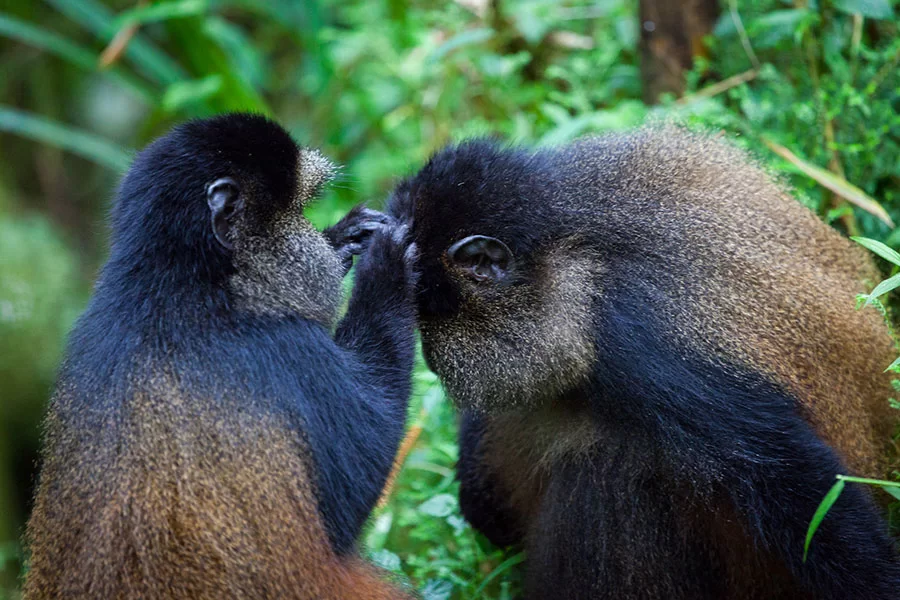
Our 4 days Rwanda Primate safari will make you visit the 2 most attractive tourist activities of Volcanoes National Park which are mountain gorillas and
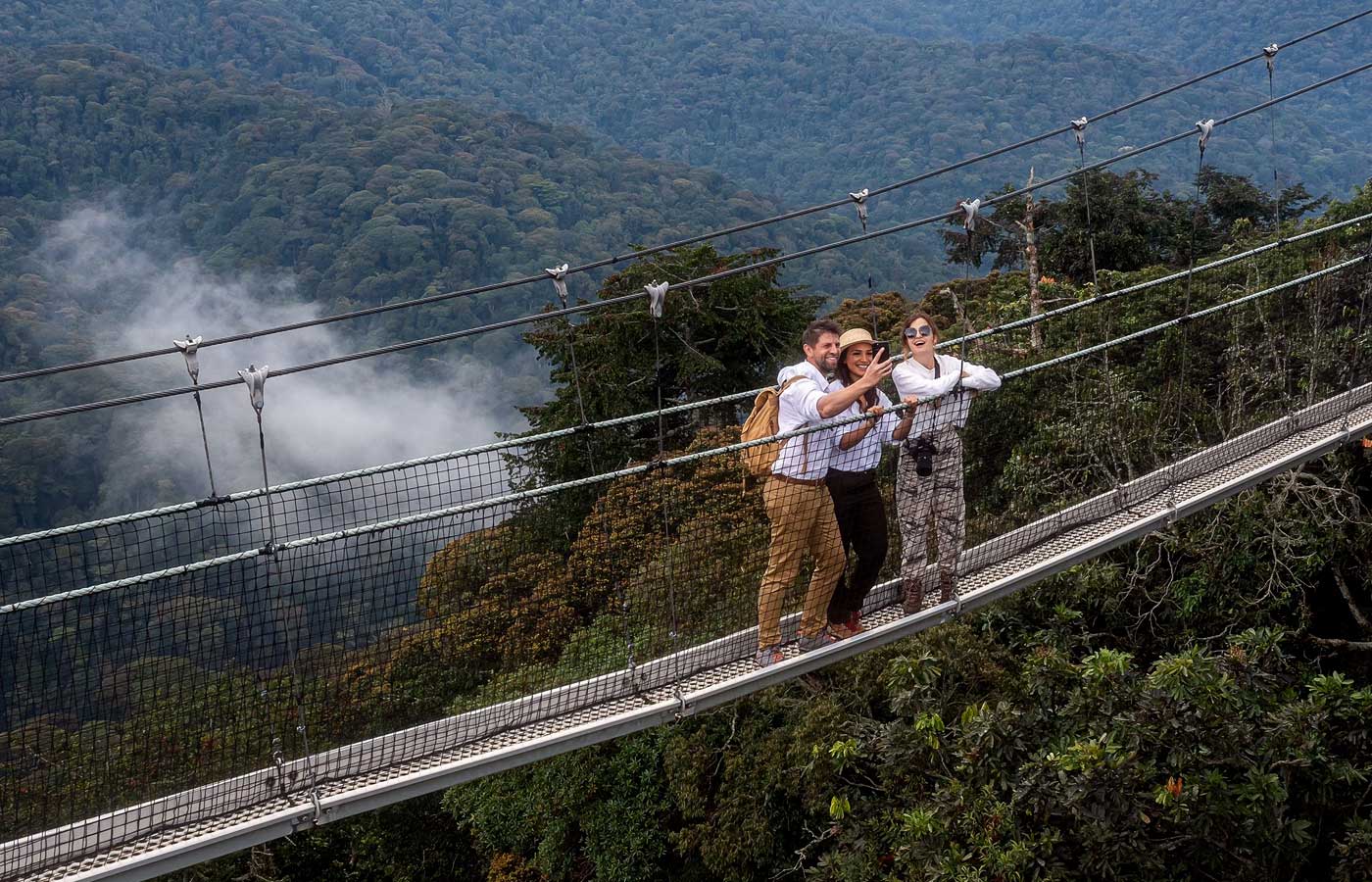
Immerse yourself in the natural and cultural richness of Rwanda on our 3-day Nyungwe National Park adventure. Explore historical landmarks like the King’s Palace and
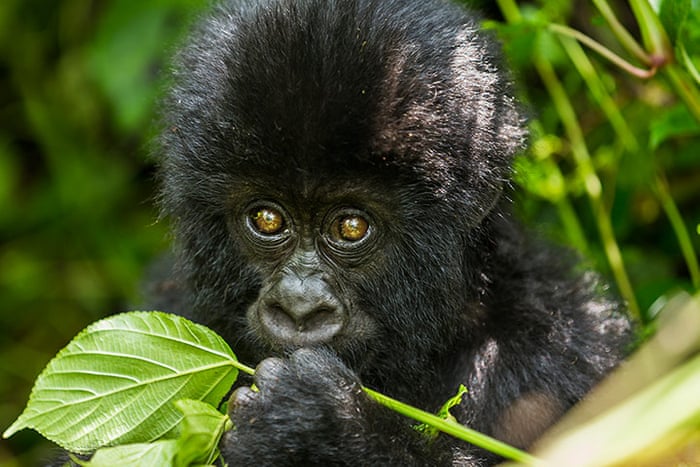
On our 3 days safari will take you to the Kigali Genocide Memorial Centre and Volcanoes National Park. You will see the twin lakes, Lake
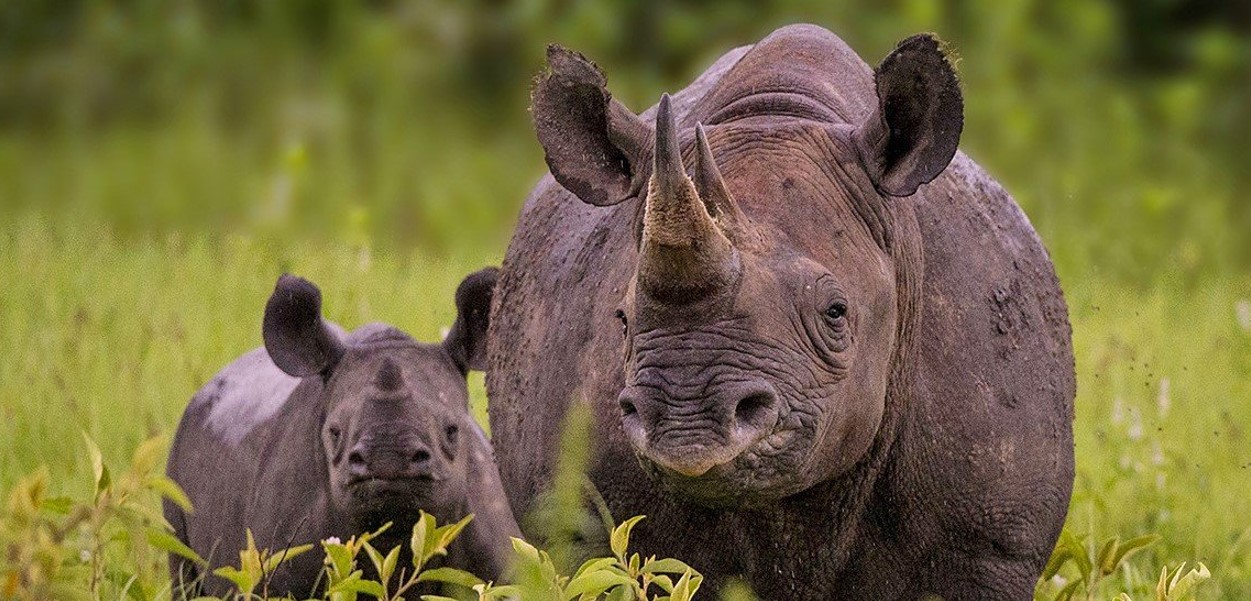
Experience the breathtaking landscapes and vibrant wildlife of Akagera National Park on this remarkable 3-day Rwanda Wildlife safari. From guided game drives to serene sunset
SAFARI
Track mountain gorillas
Rwanda’s Volcanoes National Park offers the iconic and highly sought-after opportunity to trek with mountain gorillas, of which fewer than 1,000 remain in the wild. The physically demanding journey is well-suited to active individuals. Mountain gorilla permits cost $1,500 per person per trek, and trekkers receive an hour with a habituated gorilla family after a briefing at the park headquarters.
Observe the chimpanzees
In Rwanda, after gorillas, chimpanzee treks in Nyungwe National Park are highly sought-after. Observing these intelligent, social primates in their natural habitat reveals their diverse behaviours. The activity, suitable for those fit for a few hours of hiking, occurs in a park ranging from 1,600 to 2,590 meters above sea level.
Game drives in Akagera
Akagera National Park offers game drives and safaris with opportunities to see larger mammals such as elephants, buffalo, lions, and giraffes. While not on par with other East African national parks, it’s a great choice for experiencing a Rwanda safari, which can be easily combined with other destinations in the country. Private game drives in 4×4 safari jeeps with a knowledgeable English-speaking guide are available.
ACTIVITY
Canopy tree walks
Nyungwe Forest hosts various primate species, rich flora, fauna, and birdlife. Exploring on foot offers deep insight into the ancient rainforest’s ecosystem. The canopy walks, a 160-meter suspended bridge 70 meters above the forest floor, provides elevated forest views and is a recommended activity bookable through your lodge.
CULTURE
Community projects and village walks
Rwandans are warm, proud, and passionate about their country, culture, and traditions. Exploring local villages on foot provides insights into their way of life. Many lodges offer community-focused activities, which can complement your safari or gorilla experiences.
Visit Kigali’s museums and explore local artist workshops
Kigali, scarred by the Rwandan genocide less than 30 years ago, houses a genocide museum with the remains of over 250,000 victims. Despite its somber nature, understanding the genocide’s impact and the resilience of the local people is inspiring. A private guided tour, led by a local guide with personal experiences from the war, is available. Kigali is also emerging as a hub for local artists and artisans, and we can arrange visits to workshops and craft stores for shopping.
Rwanda FAQs
The safari lodges are more mid-range to first class luxury that you will find in other parts of Africa, all will be clean, comfortable, and ideally located to enjoy your safari experience. For more information, check out our Rwanda and Uganda lodging pages or click on the bed icons next to each day of the tour itinerary to view pictures of our kind of hotels/ lodges.
Uganda uses 240 volts electricity and requires a 3-pin (square) sockets. Rwanda uses 230/240 volts at 50 Hz and a 2-pin (round) socket is required. Travelers will need a voltage converter for 110-volt devices. It is best to travel with your own adapters. Even if they do not have power, most camps or lodges, can decide for recharging batteries. Consult your guide if needed.
Yes, all meals are included in your safari while you are at one of our Safari lodges. Meals while staying at hotels in major cities (Kampala or Kigali) are limited to breakfast only. If you have any dietary preference or concerns, please let your trip planner know and the time of booking.
Your local guides are nature enthusiasts who love to share their world with travelers. Most speak several languages, and have been guiding for a combined total of over 5 years.
The food may not be sophisticated but benefits from the inclusion of fresh fruit and vegetables. You will find a largely vegetarian diet, although meat is available. The cuisine is largely based around beans, potatoes, sweet potatoes, bananas, and rice.
You will be transferred in comfortable 4×4 Safari jeeps.
Due to the high altitude and proximity to the equator, you can expect to find a remarkably pleasant tropical highland climate in Rwanda and Uganda. Rainy season runs March to May, during which the rain is fairly constant. June to mid-September is generally noted as the best time to travel. October and November will also be rainy, and there is a short dry season December to February. Even in the dry season’s travelers should expect light rain shower.
Our Africa tours tend to attract all ages. The more adventurous trekking tours tend to attract a slightly younger group (mostly 20s-40s), but we’ve also had active 70-year old’s do great on these treks so don’t let age discourage you if you are fit and healthy. Expect a wide range of ages and ask your trip planner if you are curious about the demographics for a particular departure.
No. Although there are many great destinations in Africa for children, the nature of Gorilla Tracking, and the government restrictions, mandate the participants be at least 15 years of age at the time of travel.
Yes. A solo traveller is welcome to join any set departure date for the safaris. The nature of the programs creates an environment where travelers are coming and going from lodges, but there is always a group activity to participate in.
Tour rates do not include international flights. We find that it is usually less expensive for travelers to book these separately and this also allows you the flexibility to choose the schedule and routing that is most convenient for you. You can purchase international flights on your own, or we can certainly help you arrange these flights with an airfare consolidator who specializes in international flights to Africa.
You will be met by a Safari representative once you clear customs and the baggage claim. They will transfer you to the first loge.
Local culture believes the level of tips should be at the discretion of the client and any token of appreciation is gladly received. These are our suggestions:
About 3-5% in restaurants; at lodges/camps US$ $10-15 per guest for a stay of 1-3 days; for driver/guides US$ $20 – 30 per day per client; for the Head Ranger when gorilla tracking $30 per day per client; porters at parks – $20-25 per day per person; Hotel/lodge baggage porters – $10 to $20 per client per stay. Forest walks – $20 per client.
You can book your Rwanda/Uganda tour at any time and generally the earlier you book, the better. Booking early (10-12 months or more recommended) is especially important for travelers visiting during the height of the dry season, Dec-Feb or June-Sept, as many of these departures fill up months in advance. Travelers visiting outside of these busy months can often book a bit more last minute, though a 4-6-month notice is still recommended.
Further, we usually recommend that you wait to book your international flights until after your tour is confirmed. The sooner that we arrange your tour, the sooner that you can take advantage of flight deals as they become available.
Gorilla Tracking and Permits
Only a limited number of permits are available in each gorilla park per day. It is therefore essential to book well in advance. Permits need to be paid for at the time of the initial safari booking so that they can be purchased immediately. Delay in payment can result in permits not being secured.
To protect gorillas from disease, no children under 15 or people with illnesses may go tracking. Trackers must be fit and in good health as tracking in thick forest at heights up to 3,000m traversing steep-sided mountains and ravines can be tough, arduous and wet. Permits are non-refundable. Gorilla viewing can be denied at short notice because of national park or border closures, security changes or gorillas going out of range. In such circumstance’s refunds are at the discretion of the authority and are not within the company’s control. Obtaining a gorilla permit therefore is not a guarantee of seeing a gorilla. One hour is allowed with the gorillas, at a distance of at least 7 meters. Flash photography is not allowed. Personal DVD recorders are allowed.
YES. Please contact us if you are not able to travel on the customized journeys w will curate beyond Authentic private journeys for your dream safari. Most tours can be arranged on alternative departure dates for a minimum of two travelers as long as lodges/ hotels are available.
Absolutely! Check out our journeys for ideas. Let us know how you would like to customize your trip and we will do our best to accommodate you.
You will receive a detailed packing list specific to your tour after you book. A water/windproof jacket, fleece, and sun protection are recommended for all Rwanda/Uganda tours. Fast-drying clothes that can be layered work best for these areas.
On Safari, luggage should be limited to two items of baggage per person.
Altitude affects each traveller differently and until you have visited an area with high altitude, it is impossible to predict how your body will react.
Commonly, our travelers report mild altitude symptoms such as fatigue, headache, or light-headedness during their first day or two at elevation.
Severe altitude sickness is rare. In this case, the best treatment is to go down in elevation as soon as possible. We have never had a traveller that had to be evacuated to low altitude. Many severe cases of altitude sickness are the result of a pre-existing condition that is aggravated by the altitude. It is important to ask your doctor whether or not travel to high altitude is advised, especially if you have a pre-existing heart or lung condition such as high blood pressure, asthma, angina, etc. You might also want to ask your doctor about prescription Diamox, a diuretic that many travelers swear by to help them adjust to the altitude more readily.
Petty crime is common in the larger cities of Kigali and Kampala. By staying with your guides, you will avoid most issues. Don’t wear expensive accessories or watches, and don’t carry large sums of cash. Take particular care with your passport. Travelers should take the same precautions that they would in a major city in the US. Pay attention to the advice of your tour leader and hotel reception and take common-sense precautions such as not going into unfamiliar areas alone, especially at night.
Guides will monitor your safety in cities and in the game areas. From time to time generalized travel statements are issued concerning travel conditions in the area. For current Department of State announcements and Consular information see travel.state.gov.
Rwanda is on Central African Time, GMT +02:00. Uganda is on East Africa Time Zone, GMT +03:00. Neither Rwanda nor Uganda recognize Daylight savings time.
Tap water is generally unsafe in East Africa and it’s recommended that you drink only bottled water which is widely available. Bottled water will be provided in the safari vehicles for all of our game drives and in the bathrooms at the lodges for brushing your teeth. While Gorilla Tracking, you will be required to carry your own water supply.
Uganda and Rwanda are relatively expensive destinations compared to other places in Africa. Budgeting $30-$50 dollars per day per person is reasonable. The local currency in Uganda is the Ugandan Shilling (UGX) and is currently around 3600: US$1. In Rwanda the local currency is the Rwandan Franc (RWF) currently around 1300: US$1. It is advisable to exchange a small amount of money into local currency for use at road side shops. Please be aware that high denomination US Dollar bills (only post-2000) are usable. Bills should be in excellent condition with no stains or tears. Check out a Currency Converter like, www.oanda.com/currency/converter/ for the latest exchange rates.
ATMs are readily available in the larger towns and cities, but hard, if not impossible to find elsewhere. Traveller’s checks are not recommended as they are hard to exchange, and fewer retailers are accepting them. Although it is helpful to bring a credit card along for emergencies, don’t count on using it for most purchases.
Check with your cell phone provider. Each company is different and they can give you the most up-to-date information.
The yellow fever vaccine is currently required for travelers visiting Uganda or Rwanda due to yellow fever in neighbouring countries. You should also be up to date on our routine vaccinations, including Tetanus. The CDC is currently recommending the following vaccinations: Hepatitis A and Typhoid. Malaria Travelers must bring along their International Certificate of Vaccination or Prophylaxis (ICVP) as proof of vaccination. You may also want to consider the following vaccinations: Hepatitis B, Meningitis (if traveling between Dec-June), and Rabies.
Please note that some countries, such as South Africa, require a yellow fever vaccination if traveling directly from Uganda/Rwanda. Please check with the Center for Disease Control for information for your onward travel from Uganda/Rwanda.
For the most current information, please consult your doctor and/or check out the Center for Disease Control web-site.
Rwanda: Travelers will all need a passport valid for at least 6 months after they depart. Currently, Rwanda does require a tourist visa for citizens of the US, Canada. Australia, New Zealand, Germany, Israel, South Africa, Sweden and the UK. This visa can be purchased prior to travel and costs $50USD per person. Travelers from other nationalities should check with the Rwandan Embassy for visa information.
Entry requirements change with surprising frequency. It is each traveller’s responsibility to check with the consulate for the most up-to-date visa information.
It is a condition of booking that all clients must have, and must demonstrate to Adventure Life prior to their departure, adequate insurance for the duration of the tour. Such insurance should fully cover personal injury; medical expenses; repatriation in the event of accident, illness or death; cancellation or curtailment of the tour by the company or client; and loss of, damage to, or theft of the clients’ personal property. Activities with a greater inherent risk, such as mountaineering, animal tracking on foot and white-water rafting should be covered. Theft, personal injury or any disruption to arrangements should be reported immediately to the company and to the nearest police station.
